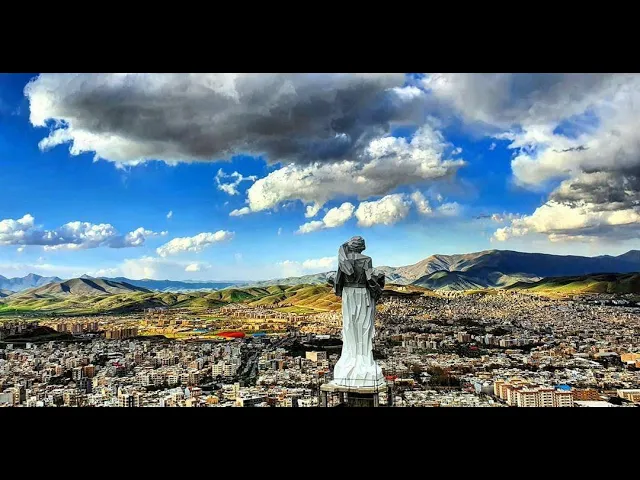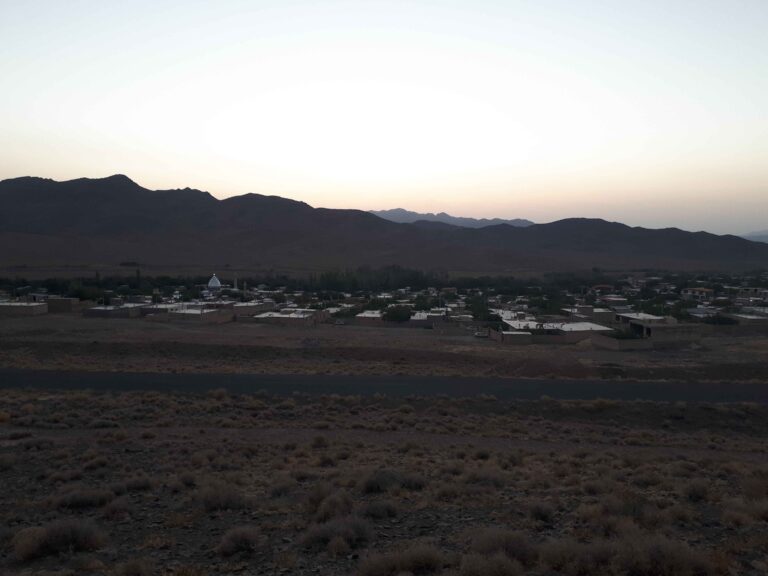We are having a trip to Tabriz, a city in Northwest Iran where the language of people is Turkish and not Persian. But before getting there we decided to visit two villages: Hilevar and Kandovan. In this video, you will see Hilevar; a dead village in West Azarbayjan county. Hile means trick and Hilevar are the people who use tricks. Why this village is called so? It is because of the architecture of the houses. The village had residences until 400 years ago. What happened to the people after that? Nobody knows but probably moved to another village near the area, Kandovan (that you are going to visit in the next video).
Hilevar is a historical village in Osku, East Azerbaijan Province, that dates back to the Ilkhanid era. It is located near the famous rock village of Kandovan, and it has a similar architecture of houses carved into the volcanic rocks of Mount Sahand. However, unlike Kandovan, Hilevar is mostly buried under the ground, and only some parts of it have been excavated and restored.
The people of Hilevar lived in underground chambers that were connected by tunnels and stairways. They used these chambers as stables, barns, kitchens, and living quarters. The chambers also had windows and ventilation holes to let in light and air. The villagers chose this style of living to protect themselves from the Mongol invasion and other threats.
I want you to visit the geography of Iran. Watch the mountains, the roads, the nature, and learn Persian language and beyond.
Also see Kahnamu, and the Bazaar of Tabriz, Urmia and Urmia Lake.
To visit Iranian people and learn about their culture and nature follow THIS LINK.
To learn Persian grammar, here you can find lessons on Persian Grammar.
Are you interested in learning Persian with music, HERE is where you can find many slow Persian songs with their lyrics.
Practice Dubbing the characters in Persian series HERE.
Listen to famous speeches from Iranian political figures, and learn about their mindset and a little bit of history through their talk HERE.
Listen to Persian podcasts in simple Persian HERE

